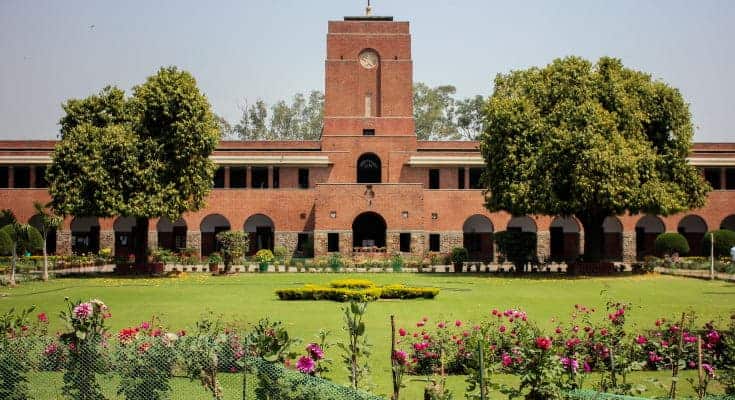A ceiling collapse disrupted a music concert at St. Stephen’s College, calling for greater accountability to address the failing state of infrastructure and misallocation of funds.
On the evening of 29 September 2023, St. Stephen’s College Music Society organized a Launch concert in the college hall. However, the event took an unexpected turn when the ceiling collapsed, abruptly interrupting the performance and causing injuries to a first-year student.
This incident is part of a concerning pattern, as several ceiling collapses have been reported at various University of Delhi (DU) colleges. In April, Lady Shri Ram College (LSR) experienced a similar occurrence when the roof of a residence hall’s bathroom stall collapsed. Then, in May, at Kamala Nehru College (KNC), a portion of the ceiling collapsed, which narrowly avoided injuring a student. In June, a ceiling fan crashed down on a student at Hansraj College.
Several concerns have been raised regarding the deteriorating state of infrastructure within DU. At St. Stephen’s College, the fee amounts to ₹23,000, with the substantial portion of ₹14,000 allocated to the college development fund. However, when students have sought transparency concerning the specific categorisation of funds within the college development fund, they have encountered unclear responses.
A student from St. Stephen’s College commented on the matter, noting,
The foyer has been closed off for four months due to safety concerns, and no repairs have been undertaken. They simply cite it as a ‘heritage building,’ using it as an excuse, while the guesthouses are in a constant state of renovation.
Furthermore, the student also pointed out that the first-floor corridor’s construction remains incomplete.
Serious concerns exist regarding fund misallocation at DU. In 2020, the St. Stephen’s library ceiling collapsed, restricting library access and operating hours for students. Despite these challenges, library fees remained unchanged. Campus Wi-Fi problems persist, forcing students to rely on limited cellular data while paying full IT/IRC fees. Team Veritas discovered a 33.3% increase in the establishment fee from ₹14,000 in 2017-18 to approximately ₹19,000 in 2019-20.
Many students were disheartened over the incident as preparations for the concert took place regularly for over a month. A student who requested to be referred to as Bob said,
We had a total of 12 performances and while the 8th performance was going on, suddenly I saw that the roof had collapsed. This isn’t the first time something like this happened. In the past, we’ve had roofs falling in classrooms and resident blocks. However, this is the first time it has happened on such a large scale with everyone present.
Following the incident, the music society immediately took charge and evacuated everyone from the college hall. However, St. Stephen’s College has not provided a satisfactory response to the situation.
Read also: Roof Collapse at Deen Dayal Upadhyaya College: Infrastructure Mishap Plagues DU Again!


















